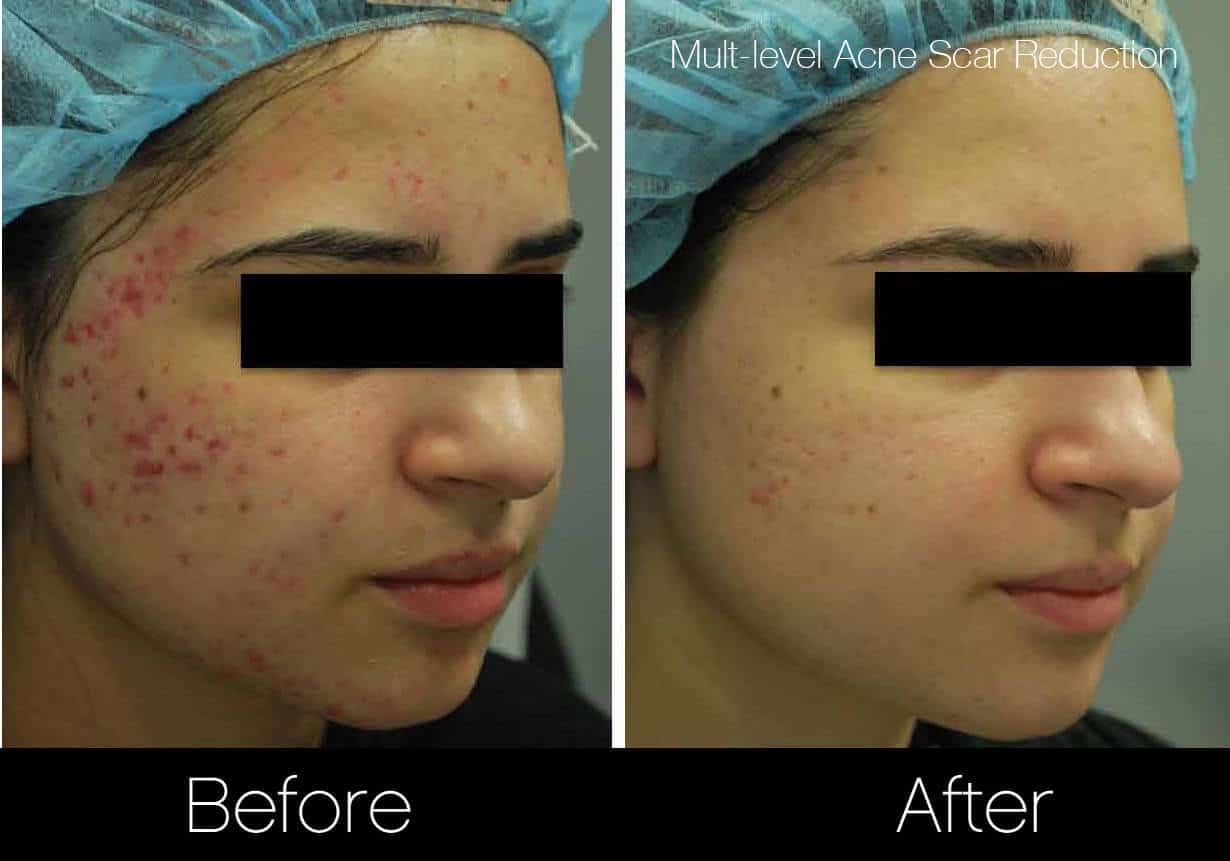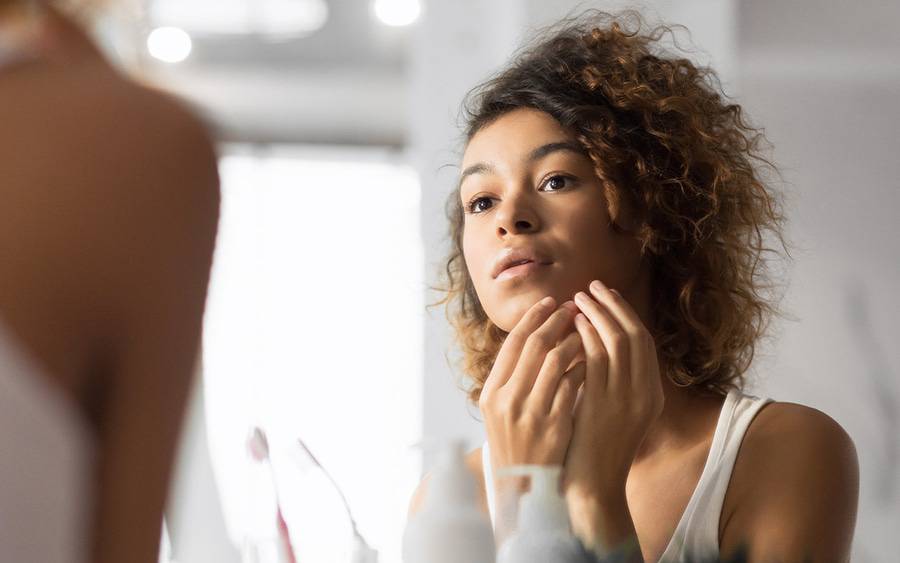How to Treat Acne Scars: Proven Methods for a Remarkable Skin
How to Treat Acne Scars: Proven Methods for a Remarkable Skin
Blog Article
Comprehending the Different Skin Problem and Effective Treatment Options for Acne Scars
Acne scars stand for a complicated interaction of skin problems that dramatically influence individuals' self-confidence and general skin health. Recognizing the distinctive sorts of acne scars-- hypertrophic and atrophic-- along with their underlying causes, is pivotal for establishing effective therapy approaches. Various healing alternatives exist, ranging from sophisticated skin-related procedures to natural treatments. The effectiveness of these therapies usually pivots on tailored assessments by qualified professionals. As we check out the landscape of acne scar administration, it comes to be noticeable that the trip towards more clear skin might involve more than just topical solutions.
Sorts Of Acne Marks

On the other hand, hypertrophic scars result from an overproduction of collagen throughout the recovery process, causing elevated locations on the skin. These scars are often solid and can differ in color, often showing up red or darker than the surrounding skin.
Understanding these types of acne marks is crucial for establishing an effective therapy plan - skin rejuvenation treatments. Choices might include chemical peels, laser treatment, microneedling, or dermal fillers, tailored to the certain mark kind. A complete appointment with a dermatologist can help figure out one of the most appropriate intervention, thinking about the individual's skin kind, mark severity, and total skin health
Sources Of Acne Scarring
Marking happens as a result of the body's natural healing reaction to inflammation and injury triggered by acne sores. When acne kinds, it activates an inflammatory response, resulting in the release of different cytokines and growth aspects that promote healing. Nevertheless, this process can often cause too much cells development or poor repair work, leading to scars.
The key reasons of acne scarring include the seriousness of the acne itself, duration of the lesions, and specific skin kinds. Serious inflammatory acne, such as nodules and cysts, is more probable to result in scarring due to much deeper cells damage. In addition, inappropriate handling of acne lesions, such as choosing or squeezing, can intensify tissue injury and swelling, boosting the possibility of scarring.
Genetic proneness likewise plays a considerable role; people with a household history of scarring go to a greater danger. Skin kind and color can influence mark formation, as darker skin tones might experience post-inflammatory hyperpigmentation, while lighter skin may create atrophic marks.
Eventually, recognizing these reasons is vital in managing acne and mitigating the possibility for scarring.

Therapy Alternatives for Scarring
Reliable treatment options for acne scarring vary depending upon the type and severity of the marks. Normally categorized right into atrophic, hypertrophic, and keloid marks, these conditions call for customized methods for optimal outcomes.
For atrophic scars, which are defined by a loss of tissue, therapies such as chemical peels, microdermabrasion, and laser treatment are typically used. These approaches promote skin revival and promote collagen production, therefore enhancing skin texture. Subcision, a minimally intrusive procedure, can additionally work by separating coarse bands below the skin.
Keloid and hypertrophic marks can be more testing to treat. Alternatives include corticosteroid shots to decrease swelling and flatten the marks. Sometimes, cryotherapy or laser therapy may be advised to decrease their appearance.
Surgical alternatives are available for serious scarring, where excision pop over here or skin grafting may be necessary. It's important for people to consult with a skin doctor to assess their specific scar kind and review the most appropriate therapy plan. Integrating multiple therapies usually yields the very best outcomes, making sure that each person's distinct skin problem is addressed efficiently.
Natural Remedy and Natural Solutions
Natural options and natural home remedy can provide an accessible method for people seeking to boost the appearance of acne marks (acne treatment for sensitive skin). Various components discovered in the home cooking area have actually shown possible advantages in enhancing skin texture and promoting healing

Another efficient alternative is lemon juice, which functions as a natural exfoliant and can lighten hyperpigmentation. Nonetheless, it should be used cautiously, as it might cause photosensitivity. Oat meal masks are also valuable; their gentle peeling can assist get rid of dead skin cells while calming irritation.
Necessary oils, such as tea tree oil and lavender oil, can even more sustain scar recovery due to their antimicrobial properties. It is vital to perform a patch test prior to applying any type of solution to guarantee there are no damaging reactions. These natural remedies can be a complementary technique in the trip to diminish acne scars.
Protecting Against Future Scarring
Embracing an aggressive strategy to skin care can significantly reduce the risk of developing future acne scars. Regular cleansing, exfoliation, and hydration can help keep skin health and prevent clogged pores.
Additionally, avoiding the temptation to pick or squeeze acne lesions is vital, as this can bring about inflammation and succeeding scarring. Rather, people must concentrate on using topical treatments that promote healing and reduce inflammation. web link Ingredients such as salicylic acid, benzoyl peroxide, and retinoids are understood for their effectiveness in handling acne and reducing scars.
Sunlight defense is one more important component; direct exposure to UV rays can dim marks and hinder healing. Using a broad-spectrum sun block daily can reduce these effects.
Last but not least, preserving a healthy diet regimen rich in antioxidants and remaining hydrated assistances skin regrowth. By carrying out these preventive actions, people can substantially lower their threat of future scarring and promote total skin health and wellness.
Conclusion
In final thought, a thorough understanding of acne scars, encompassing both hypertrophic and atrophic kinds, is crucial for efficient treatment methods. Examination with a skin doctor continues to be critical to develop individualized approaches that consider individual skin kinds and mark extent, eventually enhancing the efficacy of mark management strategies.
Acne marks represent a complex interplay of skin conditions that significantly impact individuals' self-confidence and overall skin health. The two primary groups of acne marks are hypertrophic and atrophic marks. These marks are additional categorized into three subtypes: ice pick marks, which are deep and slim; boxcar scars, which are larger and have distinct sides; and rolling scars, which create a wave-like appearance due to irregular skin appearance.
A thorough consultation with a skin doctor can assist figure out look here the most suitable intervention, taking right into account the individual's skin type, mark intensity, and general skin health.
Appointment with a skin specialist stays crucial to develop personalized strategies that take into consideration private skin types and mark intensity, eventually enhancing the efficacy of mark administration methods.
Report this page